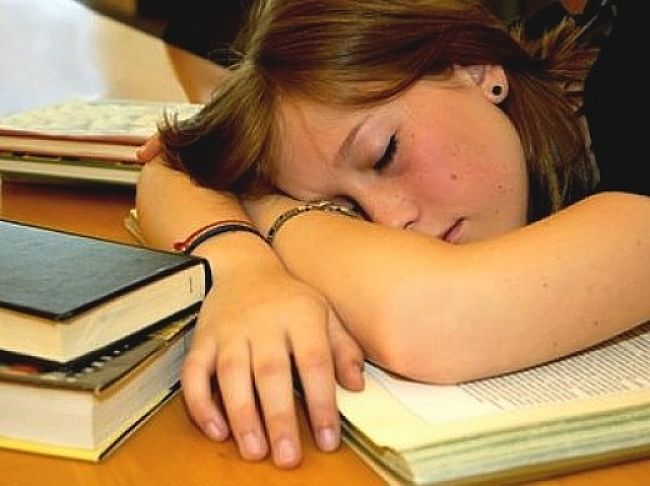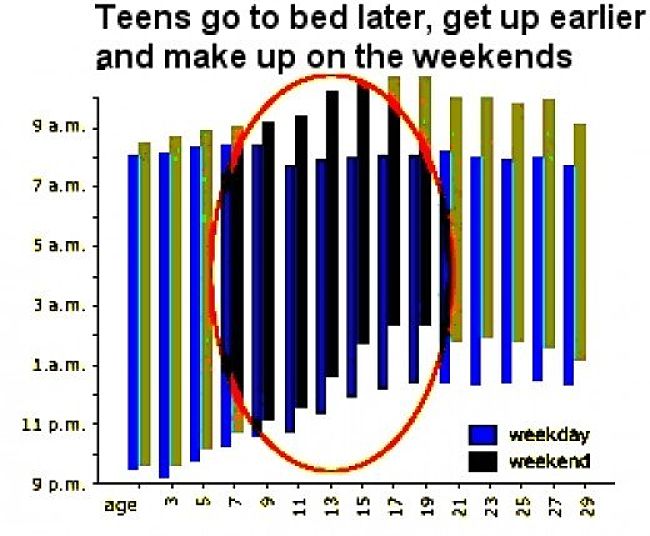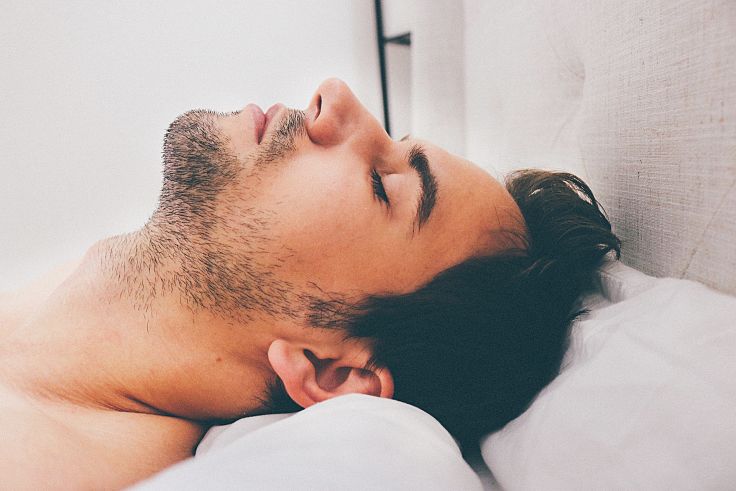How to Fall Asleep Fast and Best Ways to Stay Asleep
Falling asleep is a very natural thing to do until you can't and then you realise that you don't know how to do it. The very process of recognising that you can't get to sleep and trying to do it seems to keep you awake.
Getting to sleep can be very illusionary and you may realise that you know nothing about it, and the harder you try the worse it gets. Apart from counting sheep was can you do about out.
This article will teach you about the process of getting to sleep and offer a host of helpful tips you may find useful. The first consideration is that sleep is not something you should suddenly try to do. In some ways you should consider your sleep right through the day and prepare yourself for it.
This is much more than the simple process of cleaning your teeth and switching off the lights. The preparation should start much earlier than this and both your mind and body should be ready.

Why can’t I fall asleep?
After wake up and a long day at work, everyone wants to just go home, eat a meal, take a shower and enjoy a relaxing sleep without any hassles. If you unlucky enough to have trouble falling asleep the following information may help. Besides sleeping disorders, there are many other things simply stop people getting to sleep fast:
- Breaking your normal routine and trying to get to sleep at the 'wrong' time can be a disaster. This especially applies when you try to go to bed early because of an interview or important meeting. If you are not tired you will end up churning over the issues because you are not ready to sleep.
- Dwelling on all of life's problems and issues such as relationships, debts, money issues, work related problems, health issues, etc.
- Research has shown that 'just sleeping on it' can resolve many problems. If you recognise this it may stop your trying to work through all the issues before you go to sleep.
- Not being able to think about 'good things' when trying to relax and instead thinking about bad or complex things that have happened that are far from relaxing.
- Going to bed convinced that you won't get to sleep or trying too hard. This is a perfect way not to fall asleep, which has to be natural and not something that you can orchestrate.
- Going to bed when you are not relaxed and when you are choked up with all the stress of a hard day' s work or all the emotions of things that happen at home.
- Going to bed when you are not really tired and ready to go to sleep.
There are several aspects to consider to improve your situation:
Prepare for sleep during the day - All through the day you can make various choices and decisions that can affect how well you sleep that night. This includes what you eat and drink and how you deal with various problems and emotional stresses and strains. It also includes how often you exercise and at what time you do it through the day. It also applies to how you wind down and relax at the end of a busy day.
Exercise and Sleep - Exercise can provide a double whammy effect - it can help feel more awake during the day and help you sleep sounder and longer at night, and fall asleep faster. However there are several key aspects to consider are the kind of exercise you choose, how tired it makes you feel and when you exercise during the day. Strenuous exercise or sports games just before bedtime or even within about 2-3 hours before bedtime, can make it harder to fall asleep. Exercise right before bed stimulates your heart, brain and muscles, can provide a surge of adrenalin and raises your body temperature all of which you don't want to do before going to sleep.
The type of vigorous exercise that disturbs sleep is moderately intense activity that lifts your heart rate and lasts for 20 minutes or more. Exercise in the morning can improve your mood or relieve stress. This can indirectly improve sleep because you will be happier and will probably have fewer problems later in the day. Being exposed to bright natural light in the morning can help you sleep at night by reinforcing your body's sleep-wake cycle.
Vigorous exercise in the late afternoon or early evening has most direct benefits for getting to sleep. This is because you feel physically tired and your body temperature will have dropped back to normal. The exciting will have worn off and adrenalin levels will have returned to normal. Try to undertake about 20-30 minutes of vigorous exercise 3-4 times a week in the late afternoon. Choose whatever exercise or activity you enjoy. Try walking to and from work, or taking your dog for a walk. You can jog, swim, run a bike, ski, jump rope, dance or play tennis or many others.
Sleep Patterns and Cues - Your body will pick up the various cues to help you get to asleep. The most powerful cue ids the most obvious - simply lying down. When you watch TV, read a thriller, or mentally relive all that happened during the day, you are programming your body to do something besides sleep in bed. Eliminating these activities will help you to get to sleep fast. You need to wind down and relax before going to sleep.
- Lie Down and Try to Sleep: Wait until you are starting to get tired, lie down and try to get to sleep. If your need something to do try counting your breaths, numbers or counting sheep.
- Get Up if not Asleep in 20 minutes: If you are lying in bed for more than 15 or 20 minutes and not sleeping, get up. The idea is that you need to re-program your body and your mind to fall asleep fast. You can't really do this if you lie in bed not able to get to sleep.
- Do Something Relaxing to Calm down for Sleep: If you have to get up, do something relaxing. Read a calming book, make lists of things to do draw, listen to music or doodle. Anything that is calming and quietens you down. Remember to keep the lights dimmed. Continue this activity until you get tired enough to sleep. Do not turn work at a computer on watch TV as these activities are too stimulating.
- Try Again: Once you feel tired again, try lying down again and trying to sleep. Repeat the steps outlined above. Your first few times, you may be required to get up 3-5 times. This is not excessive and this will decrease with time. This will require perseverance. Things will improve with time as you change your habits.
Tips for Getting to Sleep and Staying Asleep
- Keep all remote controls and TVs, reading material and other distractions far away from your bed. Do not be tempted by them.
- Make sure any lights that you turn on at night are dim. Bright light will stimulate you.
- Try not to nap during the day and if you must nap keep it to less than 20 minutes long.
- Try not to think about things in bed and focus on switching off and going to sleep. Let go of the day and count your breaths or other boring things.
- Set up a place to go and a procedure to adopt when you can’t get to sleep. You will need a comfortable chair, a boring book, a small dim light and a pad of paper for making notes or drawing. After a few times, you will not have to use this place again but it is important this it is set up initially so you have somewhere to go.
- Don’t go to bed until you are very tired and plan your day around making you tired at the right time and be confident that will fall asleep right away. After a couple of days things will get easier..
- Avoid Alcohol, Caffeine, Nicotine, and other Chemicals that can prevent Sleep. Caffeine is a well known stimulant that can keep you awake if you consume too much too soon to your bedtime. So avoid caffeine (that is found in cola, coffee, chocolate, tea and some pain relievers) for 4-6 hours before bedtime, or whatever gap time works for you. The same applies to using tobacco close to when you are to go to sleep. I is true that alcohol may help to induce sleep, but after a few hours you will wake several times and not be able to sleep properly.
- Make sure Your Bedroom is an ideal Environment for Sleep. It should be quiet, dark, well-ventilated, comfortable and cool environment. Use blackout shades, heavy curtains or an eye mask to block out the light.
- Establish a Wind-down Pre-Sleep Routine. Reading a novel before going to bed in a dim setting is a good way to get ready for sleep. Develop a routine to make the transition from being active and awake to being ready for sleep over 30-60 minutes before going to bed. Take a warm bath (tithe lavender), read a book, listen to music, or do some relaxation exercises. Avoid any stressful disturbances.
- Don't watch the Clock - Constantly looking at the clock in your bedroom when trying to go to sleep and create anxiety that will keep you awake. Turn the clock’s face in the other direction and resist the temptation of looking at your wrist watch.
- Try to maintain a regular sleeping pattern, by going to bed and waking up at about the same time every day.
- Reduce the size of Evening Meals or eating early enough so that the meal will not disturb your sleep.
- Get professional help for persistent insomnia.If you have trouble getting to sleep for weeks rather than days it is probably time to seek professional help.
- Get rid of distractions - Get rid of magazines, fliers, the remote controls, books or any other distraction likely to tempt you.
- Count sheep or anything else - sounds strange but it actually works. Counting things does work - breathes, sheep. count down from 100 or any other boring task.
- Use aromatherapy - Many people find that this helps to get to sleep.
- Make some noise - sounds odd, but some people find it very hard to get to sleep when its too quiet even if its the sound of a fan or very soft music.
Related Articles about Sleep and Health Implications
=> Why Adequate Sleep is Important for Weight Loss
=> Teenage Obesity, Teen Weight Problems Linked to Late Sleeping Patterns
=> Does Lack of Sleep Stop Weight Loss Progress When Dieting?
=> Teenage Sleep Requirements, Lack of Sleep, Ensuring Teens Get Enough Sleep
=> Co-Sleeping with Baby - New Warnings on Risks, Dangers and Precautions Required
=> Better-Sleeping-Tips-and-Good-Sleep-Guide That Works
=> Sleep Apnea Treatments and Prevention Without Masks
=> How Much Sleep Do You Really Need - Age, Weekly Cycle and Personal Needs Guide
=> Trouble Sleeping - Blame it on the Moon Phase
=> Q&A: Why Do Humans Need to Sleep and Animals Too?
=> Sleeping on Aeroplanes - Tips for Decent Sleeps, Naps on Long Flights
=> Always Tired and Sleepy - Excessive Tiredness Causes and Symptoms







